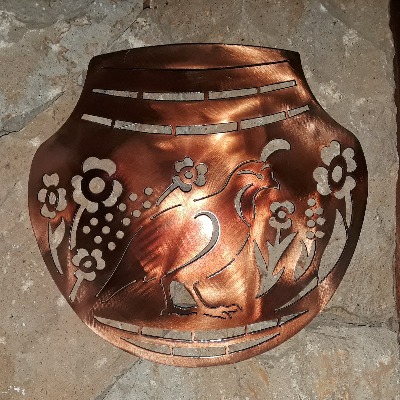Indigenous communities in Bolivia show how lifestyle habits are connected to brain health
Brain size typically declines with age, but the severity and prevalence of that decline may be related to lower activity levels, higher food consumption, and other evolutionary changes in lifestyle that are common in industrialized societies. An NIA- funded study of two indigenous South American groups, published in Proceedings of the National Academy of Sciences, supports the idea that there may be a lifestyle “sweet spot” for healthy aging.
funded study of two indigenous South American groups, published in Proceedings of the National Academy of Sciences, supports the idea that there may be a lifestyle “sweet spot” for healthy aging.
The goal of the study was to test a theory called the “embarrassment of riches” brain health model. In preindustrial society, higher food intake and less energy expenditure would have been positively associated with brain health. As the authors note, industrialization has greatly altered lifestyles and led to an embarrassment of riches, or too much of a good thing. On average, people are more sedentary, eat more food, and experience fewer infections. Although some of these changes may help the brain grow and develop, others, such as higher levels of obesity and high blood pressure, may be harmful to how the brain ages.
To test this theory, researchers from Chapman University and the University of Southern California analyzed the health records and brain scans of 1,165 individuals, 40 to 94 years old, who belonged to one of two related, indigenous populations found in Bolivia: the Tsimané and the Mosetén. Both populations live relatively “preindustrial” lifestyles in that they spend a great deal of energy hunting, fishing, and farming for food. However, the Mosetén also experience more industrial world norms, namely, they have more access to modern medicine, food markets, and schooling.

Researchers studied the brain health of the indigenous Mosetén and Tsimané communities in Bolivia.
Initial results supported the idea that these individuals may age differently than those in industrial societies. For example, relatively few individuals in both groups were obese or had high levels of cholesterol. While the brain volumes of individuals from both groups decreased with age, differences in brain size across age were smaller than those seen in studies of individuals in the United States and Europe. Notably, the brains of Mosetén individuals shrank faster than those of the Tsimané, suggesting that the Moseténs’ more industrialized lifestyle is negatively affecting their health.
Further analysis provided support for the embarrassment of riches model. In particular, the researchers found there was a sweet spot between body mass index (BMI) and the rate at which the brains of the indigenous individuals shrank with age. The brains of those who had BMIs in the highest or lowest ranges tended to have smaller brains for their age than those who had a “sweet spot” above-average BMI. A similar trend was seen with levels of non-HDL cholesterol, a cardiovascular health risk factor.
Overall, these findings suggest that adjustments in lifestyle may improve aging heart and brain health. The researchers also suggest that understanding the evolutionary roots of how hunger and activity are balanced could help people make lifestyle changes to improve their health. Future research focused on long-term follow-up and genetic variations within nonindustrialized populations may be an important next step to better understanding how societal developments and lifestyle habits are tied to brain health.
____________________
Credit: National Institute on Aging



















